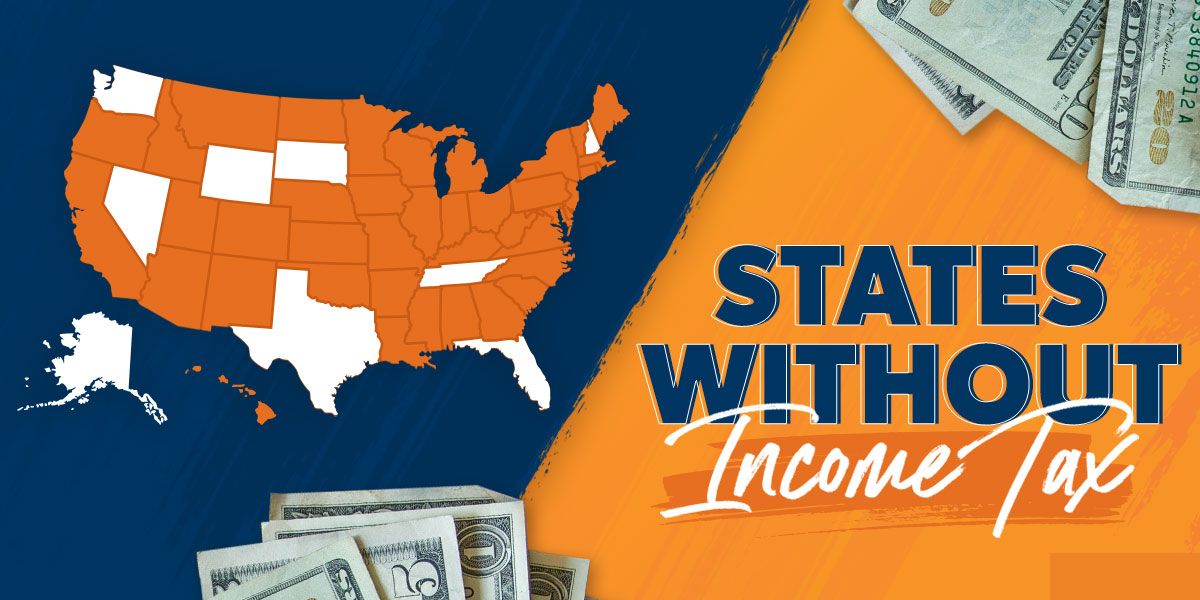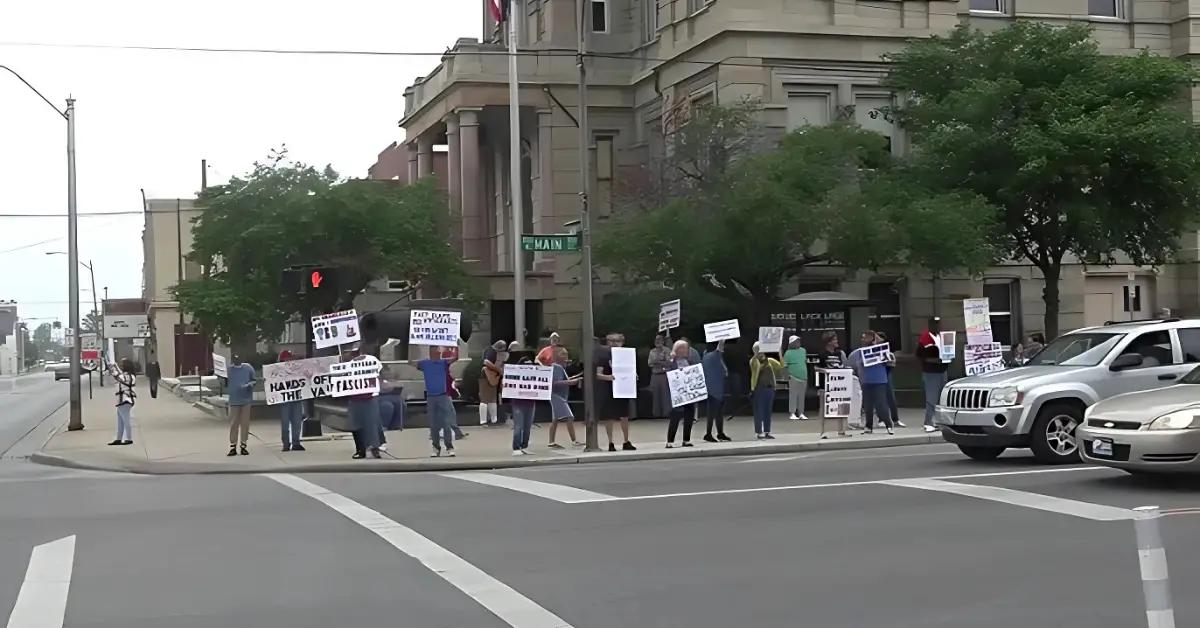When it comes to taxes, most U.S. states rely on income taxes as a major source of revenue. But a few states have taken a different approach—opting not to levy a state income tax at all.
While many states heavily tax wages, Washington has long been one of the few holdouts, along with others like Wyoming, New Hampshire, and Alaska.
As of recent years, Washington remains one of the most notable examples of a state that doesn’t tax your income, and this unique policy has become a defining feature of the state’s tax system.
So, what does it mean for residents and businesses in Washington that there’s no state income tax? And how does the state make up for this absence of revenue?
Let’s explore why Washington’s “no income tax” status has such an impact—and how it affects the state’s economy and its residents.
1. Washington’s No Income Tax Status: A Brief Overview
Washington has never had a state income tax, which is a huge selling point for both residents and businesses. While most states rely on income taxes to fund everything from public education to healthcare, Washington’s government relies on a combination of other revenue sources. These include sales taxes, business and occupation (B&O) taxes, and property taxes.
The absence of a state income tax is particularly appealing to people who earn wages and entrepreneurs looking for tax relief. Over the years, Washington has built its tax system around these other sources of revenue, and the state has managed to function without the need to tax income.
In fact, Washington’s tax system is one of the most reliant on sales taxes in the entire country. The state has one of the highest state sales tax rates in the U.S., which helps make up for the lack of an income tax.
2. How Washington Makes Up for the Lack of Income Tax
Without an income tax, Washington must rely on other revenue sources to fund state programs, services, and infrastructure. Here’s how the state generates revenue:
- Sales Tax: Washington has a relatively high sales tax, which is a key part of its revenue structure. The state imposes a base sales tax rate of 6.5%, but localities can add their own surtaxes, making the total rate as high as 10.4% in some areas. This is one of the highest sales tax rates in the U.S., and it applies to a wide range of goods and services. Essentially, if you’re spending money in Washington, you’re paying sales tax.
- Business and Occupation (B&O) Tax: Rather than taxing income, Washington levies a B&O tax on gross receipts for businesses. This tax is assessed on a business’s total revenue, rather than profits, making it a unique model. It applies to a wide range of industries, including retail, manufacturing, and services. While this system helps Washington avoid an income tax, some business owners argue that it can be burdensome, especially for small businesses with thin profit margins.
- Property Tax: Like many states, Washington generates revenue through property taxes. The state’s property tax system is relatively straightforward, with rates set at the local level. Property taxes are one of the primary ways that local governments fund services such as public schools and emergency services. While property taxes are generally lower than in some other states, they still play a crucial role in funding Washington’s local governments.
- Excise Taxes: Washington also imposes excise taxes on specific goods and services, including fuel, tobacco, and alcohol. These taxes help support state programs, especially those aimed at health and social services.
3. What Does the No Income Tax Mean for Washington Residents?

For residents, the biggest benefit of living in Washington is the absence of a state income tax. People can keep more of their hard-earned money compared to states with higher income taxes. Here’s how this tax policy impacts individuals and families:
- More Disposable Income: Without a state income tax, residents of Washington are able to keep a larger portion of their paycheck. This means more money to spend, save, or invest. For higher earners, this can result in significant tax savings over time.
- Appeal to High-Income Earners: Washington is especially attractive to high-income earners, who are typically subject to the highest income tax rates in other states. Entrepreneurs, investors, and retirees who earn passive income often move to Washington to avoid the substantial taxes that could otherwise take a significant chunk of their earnings.
- Attracting Businesses: The lack of an income tax has made Washington an attractive place for businesses. With no state-level corporate income tax, the state can offer an appealing environment for companies to grow and thrive. However, businesses do face the B&O tax on their gross receipts, which can be an added expense for companies that have lower profit margins.
- More Flexibility for Retirees: Washington also appeals to retirees, particularly those with substantial savings or pension income. Without an income tax, retirees can stretch their retirement funds further, which makes Washington an attractive option for people looking to relocate after they stop working.
4. Challenges and Criticisms of Washington’s Tax System
Can You Really Believe? 9 Things You Should Never Say to a New Hampshire Local (And Why)?
While the absence of a state income tax is certainly a perk for residents and businesses, Washington’s tax system is not without its drawbacks. Critics of the system point to the following challenges:
- Regressive Tax System: One of the major criticisms of Washington’s tax system is that it is regressive. Sales taxes hit lower-income individuals and families the hardest, as they spend a larger percentage of their income on goods and services subject to sales tax. In comparison, higher-income individuals tend to save more and may spend a smaller proportion of their income on taxable goods. This means that the tax burden falls disproportionately on lower-income residents.
- Reliance on Sales Tax: The state’s reliance on sales taxes as its main source of revenue means that Washington’s budget is vulnerable to economic fluctuations. When the economy is booming, sales tax revenue increases. However, during recessions or economic downturns, people buy fewer goods, leading to a decrease in revenue. This can create budget shortfalls that are harder to manage, especially since sales tax revenues are more volatile than income tax.
- Potential for Future Reform: There has been growing concern about the sustainability of Washington’s tax structure, especially with the state’s increasing need for funding in areas like education, infrastructure, and healthcare. Some have called for a state income tax to help diversify the revenue base and make the system more progressive. In 2020, Washington voters even considered a state income tax proposal that was ultimately rejected, but the debate continues to bubble up as the state looks for ways to address budget shortfalls.
5. What’s Next for Washington’s No Income Tax Policy?
While Washington’s no income tax policy remains a hallmark of the state’s tax structure, there are ongoing discussions about the future of this system. The state’s economic needs, especially in the face of rapid population growth, aging infrastructure, and rising healthcare costs, may push policymakers to consider new tax options in the coming years.
In fact, some proposals have already been introduced, such as a capital gains tax, which targets income from the sale of certain investments like stocks and bonds. Although it was challenged in court, such initiatives could signal a shift in the state’s approach to generating revenue.
For now, though, Washington remains one of the few states that provides residents with the advantage of no state income tax. The policy continues to be a major draw for those seeking to minimize their tax burden, and it plays a significant role in the state’s business-friendly environment.
Conclusion
Washington’s no state income tax policy is a distinctive feature that has contributed to the state’s popularity with residents and businesses alike.
By relying on other revenue sources like sales taxes, B&O taxes, and property taxes, Washington has built a unique economic model that allows it to function without the need to tax wages. While this system offers benefits, it also presents challenges, particularly in terms of tax fairness and economic vulnerability.
Whether Washington will stick with its no-income-tax approach or evolve to meet future needs remains to be seen—but for now, it continues to stand out as one of the last states without an income tax, offering both opportunities and challenges to its residents and businesses.
—- MJP




